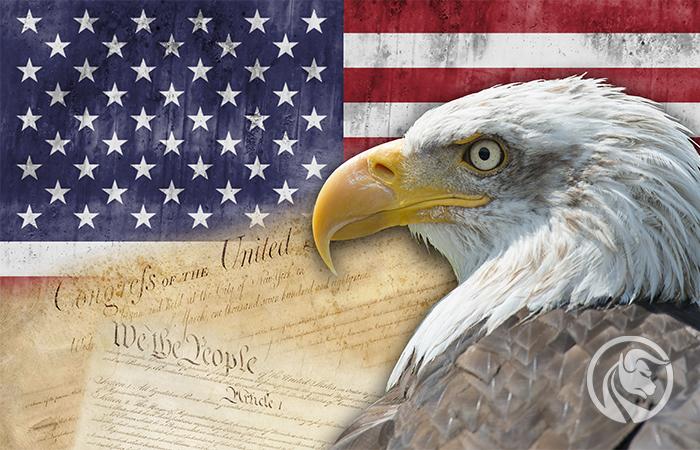Biden's trade policy: partial reset
With the new administration assuming power, the question is how the relationship between the United States and the rest of the world will develop over the next four years. It cannot be denied that internationally, the image of the United States has already changed; Washington too will undoubtedly move away from the bellicose rhetoric of the Trump administration. During the first months of the new administration's office, trade policy will not be the main topic as the priority will be to revive a weakened economy, but trade deals and tariffs are the second most important area of policy for the new president. In our view, the Biden administration in foreign policy will adopt the Jeffersonian approach (as does the Obama administration), promoting multilateralism and seeking reconciliation with the Europeans. Biden's trade policy will primarily focus on China, and the list of allegations against Beijing will align with the list compiled by the Trump administration.
About the Author
 Christopher Dembik - French economist of Polish origin. Is a global head of macroeconomic research at a Danish investment bank Saxo Bank (a subsidiary of the Chinese company Geely serving 860 HNW customers around the world). He is also an advisor to French parliamentarians and a member of the Polish think tank CASE, which took first place in the economic think tank in Central and Eastern Europe according to a report Global Go to Think Tank Index. As a global head of macroeconomic research, he supports branches, providing analysis of global monetary policy and macroeconomic developments to institutional and HNW clients in Europe and MENA. He is a regular commentator in international media (CNBC, Reuters, FT, BFM TV, France 2, etc.) and a speaker at international events (COP22, MENA Investment Congress, Paris Global Conference, etc.).
Christopher Dembik - French economist of Polish origin. Is a global head of macroeconomic research at a Danish investment bank Saxo Bank (a subsidiary of the Chinese company Geely serving 860 HNW customers around the world). He is also an advisor to French parliamentarians and a member of the Polish think tank CASE, which took first place in the economic think tank in Central and Eastern Europe according to a report Global Go to Think Tank Index. As a global head of macroeconomic research, he supports branches, providing analysis of global monetary policy and macroeconomic developments to institutional and HNW clients in Europe and MENA. He is a regular commentator in international media (CNBC, Reuters, FT, BFM TV, France 2, etc.) and a speaker at international events (COP22, MENA Investment Congress, Paris Global Conference, etc.).
With that in mind, here are our projections for the evolution of US trade policy during Biden's tenure, focusing on five major themes: the World Trade Organization and its appeal body; climate change and its integration into trade policy; tariff policy; as well as trade relations with the European Union and China.
World Trade Organization
The Trump administration circumvented World Trade Organization rules, the United States failed to respect the rule of law in international trade, and Washington took unilateral steps to protect its own trade interests. The United States' concerns about the World Trade Organization and its effectiveness in resolving trade disputes will not disappear overnight, but the Biden administration, operating in a more conventional manner, is likely to attempt to reform the organization from within, which would ultimately revitalize the organization and its governing body. appeal and ensure maximum smooth, predictable and free trade.
Climate change
With the United States projected to rejoin the Paris Climate Agreement in early 2021, climate change will be at the heart of US security and trade policy over the next four years. The president-elect has already announced that he will exert further pressure on other countries to set more ambitious targets, using the American economic leverage if necessary (most likely, for example, in the form of development aid rather than tariffs). For the first time, the three major superpowers (US, EU and China) will be climate-compatible, which could lead to concrete achievements in tackling this global problem in the near future.
Tariff Policy (in general)
With regard to tariffs, Biden's trade policy will be different from Trump's. The Biden administration will most likely refrain from threatening new tariffs whenever possible, instead taking a more multilateral approach to promote the international trade agenda. In a context of large divisions in Congress, in which the Republicans are likely to remain in power in the Senate, the new administration will have less room for maneuver in terms of trade policy. Congress is leaning to withdraw tariff power and step up oversight of possible "national security" measures.
Section 232 - Steel and Aluminum Tariffs
We anticipate an end to the artificial trade war with Europe, which means the lifting of tariffs on steel and aluminum materialand the threats of automatic tariffs. This is a necessary step to strengthen transatlantic relations and create a united international front on Chinese trade practices. During the campaign, Biden confirmed that he would promptly consult with allies of the United States before deciding on the future of US tariffs on Chinese goods in order to create a joint advantage over the Middle Kingdom. Forming a coalition of countries dissatisfied with the fact that China is using loopholes in World Trade Organization rules to unfairly compete with foreign companies will be an easy task. Unlike the Trump administration, the Biden administration understands that the United States can look after its own interests more efficiently through coalitions and multilateral cooperation than through unilateral initiatives and hostility towards other countries. This new approach could ultimately prove to be a much bigger challenge for Beijing.
China
Limiting Chinese influence and confrontation with the Middle Kingdom is a strategic consensus of both major political parties in the United States. We therefore do not expect Biden to lift the tariffs imposed by Trump on Chinese goods - at least initially, both the tariffs and the Phase XNUMX agreement will remain in force. Assuming the pending V-recovery in China continues, the pace of Chinese purchases should accelerate even more, which will be another good reason to keep the first phase agreement in force. Regarding China, Biden's views are more or less in line with Trump's, which means that the two presidents' allegations against the Middle Kingdom also coincide. The main difference is that Biden will work closely with the EU, Japan and Australia on this. So we predict China will be one of the top problems for US trade policy in the next four years, with an emphasis on Chinese subsidies and non-market practices. The rhetoric will undoubtedly change, but the tensions between the two countries will remain.






















![Forex Club – Tax 9 – Settle tax on a foreign broker [Download the Application] Forex Club - Tax 9](https://forexclub.pl/wp-content/uploads/2024/02/Forex-Club-Podatek-9-184x120.jpg?v=1709046278)
![Trading View platform – solutions tailored to the needs of traders [Review] trading view review](https://forexclub.pl/wp-content/uploads/2024/03/trading-view-recenzja-184x120.jpg?v=1709558918)
![How to connect your FP Markets account to the Trading View platform [Guide] fp markets trading view](https://forexclub.pl/wp-content/uploads/2024/02/fp-markets-trading-view-184x120.jpg?v=1708677291)
![How to invest in ChatGPT and AI? Stocks and ETFs [Guide] how to invest in chatgpt and artificial intelligence](https://forexclub.pl/wp-content/uploads/2023/02/jak-inwestowac-w-chatgpt-i-sztuczna-inteligencje-184x120.jpg?v=1676364263)





![Izabela Górecka – “Success on the market depends not only on knowledge, but also on emotional stability” [Interview] Izabela Górecka - interview](https://forexclub.pl/wp-content/uploads/2024/04/Izabela-Gorecka-wywiad-184x120.jpg?v=1713870578)
![WeWork – the anatomy of the collapse of a company valued at $47 billion [WeWork, part II] wework bankruptcy story](https://forexclub.pl/wp-content/uploads/2024/04/wework-bankructwo-historia-184x120.jpg?v=1711729561)
![Adam Neumann – the man who screwed up Softbank [WeWork, part AND] adam neumann wework](https://forexclub.pl/wp-content/uploads/2024/04/adam-neumann-wework-184x120.jpg?v=1711728724)



![The most common mistakes of a beginner trader - Mr Yogi [VIDEO] Scalping - The most common mistakes of a beginner trader - VIDEO](https://forexclub.pl/wp-content/uploads/2024/03/Scalping-Najczestsze-bledy-poczatkujacego-tradera-VIDEO-184x120.jpg?v=1711601376)
![Learning patience: No position is also a position - Mr Yogi [VIDEO] Scalping - Learning patience - No position is also a position - VIDEO](https://forexclub.pl/wp-content/uploads/2024/03/Scalping-Nauka-cierpliwosci-Brak-pozycji-to-tez-pozycja-VIDEO-184x120.jpg?v=1710999249)
![When to exit a position and how to minimize losses - Mr Yogi [VIDEO] Scalping - When to exit a position and how to minimize losses - VIDEO](https://forexclub.pl/wp-content/uploads/2024/03/Scalping-Kiedy-wyjsc-z-pozycji-i-jak-minimalizowac-straty-VIDEO-184x120.jpg?v=1710336731)


















Leave a Response